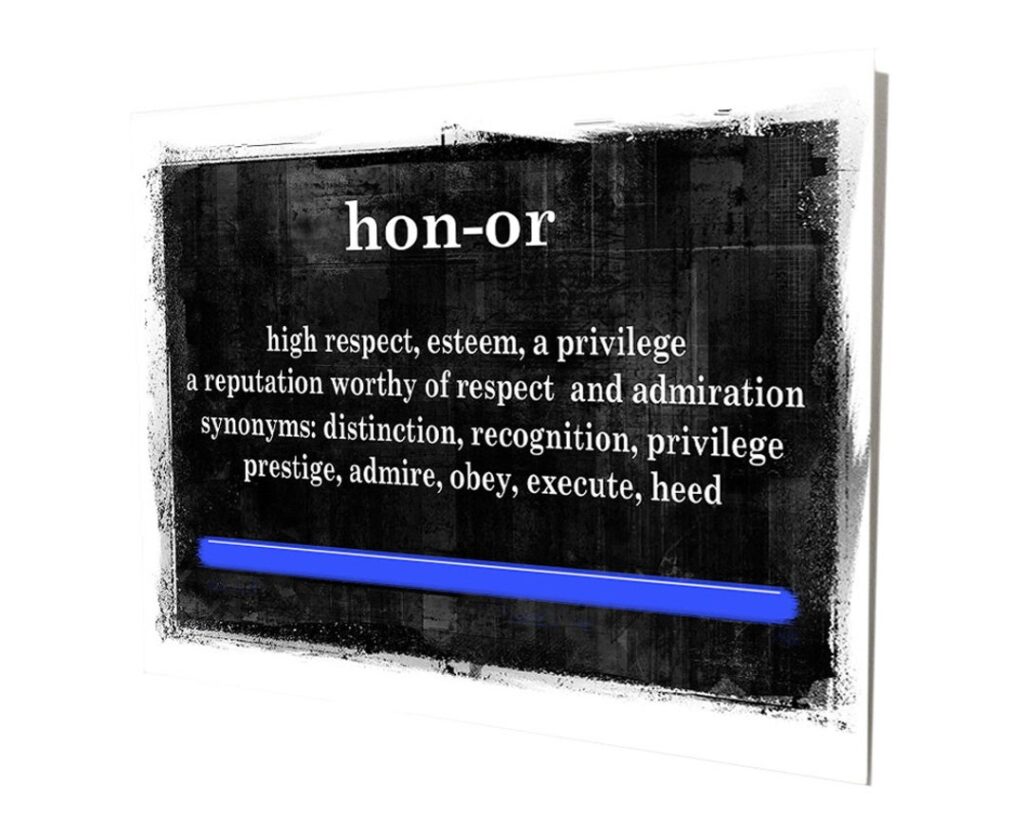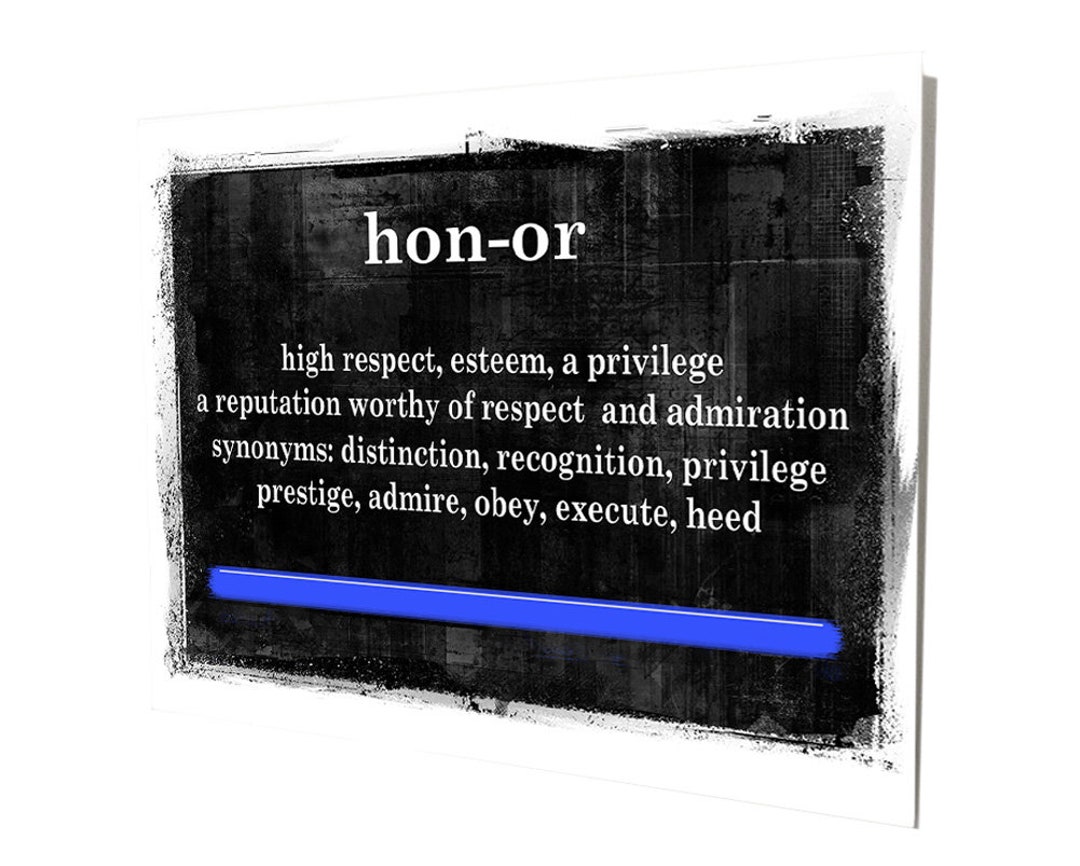
The Definition of To Honor: Exploring Its Depth and Significance
The concept of honor is deeply ingrained in human society, shaping our interactions, moral compass, and sense of self-worth. But what does it truly mean to honor someone or something? The definition of to honor extends beyond simple respect; it encompasses a profound sense of admiration, esteem, and reverence. This article delves into the multifaceted definition of to honor, examining its historical roots, cultural variations, and contemporary relevance. Understanding the nuances of what it means to honor is crucial for fostering meaningful relationships and upholding ethical principles in a rapidly changing world. The act to honor is a testament to our values, reflecting what we hold sacred and worthy of recognition. This exploration seeks to provide a comprehensive understanding of the true definition of to honor.
Historical Roots of Honor
The notion of honor has ancient origins, dating back to civilizations like Greece, Rome, and various Eastern cultures. In these societies, honor was often tied to social status, lineage, and martial prowess. The definition of to honor in these contexts frequently involved upholding family reputation, defending one’s community, and adhering to strict codes of conduct. For example, in ancient Greece, the concept of kleos, or immortal fame, was a driving force behind heroic actions. Warriors sought to honor their ancestors and secure their own place in history through acts of bravery and self-sacrifice. Similarly, in feudal Japan, the samurai code of bushido emphasized loyalty, honor, and self-discipline as paramount virtues. To fail in these areas was considered a grave dishonor, often leading to ritual suicide (seppuku) as a means of restoring one’s honor. [See also: The Code of Bushido: Ethics and Modern Implications]
The Roman concept of virtus, encompassing courage, integrity, and moral excellence, also played a significant role in shaping the definition of to honor. Roman citizens were expected to honor their state and contribute to its prosperity through civic duty and military service. The pursuit of honor was thus intertwined with the pursuit of the common good. These historical examples highlight the enduring importance of honor as a social and moral construct, influencing behavior and shaping societal norms across different cultures and time periods.
Cultural Variations in the Definition of To Honor
While the core concept of honor remains consistent across cultures, its specific manifestations can vary considerably. In some cultures, honor is primarily associated with family and kinship ties. Maintaining the honor of one’s family is considered a sacred duty, and actions that bring shame or dishonor upon the family are met with severe disapproval. In other cultures, honor is more closely linked to individual achievement and personal integrity. Individuals are expected to honor their commitments, uphold ethical standards, and act with fairness and justice in their dealings with others. The definition of to honor is also influenced by religious beliefs and spiritual values. Many religions emphasize the importance of honoring God, respecting religious leaders, and adhering to sacred traditions. To act in accordance with these principles is seen as a way of demonstrating faith and earning divine favor.
Furthermore, the definition of to honor can also be shaped by historical experiences and social circumstances. In societies that have experienced conflict or oppression, honor may be associated with resistance and defiance against injustice. Individuals who stand up for their rights and defend the vulnerable are often seen as acting honorably, even if their actions are considered controversial or rebellious. This highlights the dynamic and contextual nature of honor, which can be interpreted and applied in different ways depending on the specific circumstances. [See also: Cultural Relativism and Ethical Frameworks]
Contemporary Relevance of Honoring Others
In today’s increasingly interconnected and globalized world, the definition of to honor remains as relevant as ever. While traditional notions of honor may seem outdated or even problematic in some contexts, the underlying principles of respect, integrity, and ethical conduct remain essential for building trust, fostering cooperation, and promoting social harmony. To to honor someone in the modern era means recognizing their inherent worth as a human being, valuing their contributions, and treating them with fairness and dignity. It also involves upholding ethical standards in our professional and personal lives, being honest and transparent in our dealings with others, and taking responsibility for our actions. The act to honor is crucial for maintaining a positive and productive work environment.
Moreover, the definition of to honor extends beyond individual interactions to encompass broader social and environmental concerns. To to honor the environment means protecting natural resources, reducing pollution, and promoting sustainable practices. To to honor future generations means making responsible choices that will ensure their well-being and prosperity. To to honor the past means preserving cultural heritage, learning from historical mistakes, and working towards a more just and equitable future. In this sense, honor becomes a guiding principle for ethical decision-making and responsible citizenship. The definition of to honor includes the recognition of achievements and contributions. We to honor those who have served our country, those who have excelled in their fields, and those who have made significant contributions to society. This recognition reinforces positive behavior and inspires others to strive for excellence. [See also: Ethical Leadership in the 21st Century]
Examples of Honoring in Everyday Life
The definition of to honor can be seen in countless everyday actions. Saying “thank you” to someone who has helped you is a simple but powerful way to honor their kindness and generosity. Listening attentively to someone who is speaking is a way to honor their thoughts and feelings. Treating others with respect, regardless of their background or beliefs, is a fundamental expression of honor. Upholding your commitments and keeping your promises is a way to honor your word and build trust with others. Standing up for what is right, even when it is difficult or unpopular, is a way to honor your values and principles. Supporting charitable causes and volunteering your time are ways to honor those in need and contribute to the common good. These examples illustrate that honoring is not just a grand gesture or a formal ceremony; it is a way of life that permeates our daily interactions and shapes our character. The definition of to honor is to show respect and admiration.
The Importance of Self-Honor
While honoring others is essential, it is equally important to honor oneself. Self-honor involves recognizing your own worth, valuing your own talents and abilities, and treating yourself with kindness and compassion. It means setting healthy boundaries, prioritizing your well-being, and pursuing your goals with integrity and determination. Self-honor is not about being selfish or arrogant; it is about recognizing that you deserve to be treated with respect and dignity, just like everyone else. When you to honor yourself, you are better equipped to honor others and make a positive contribution to the world. The definition of to honor also extends to respecting one’s own boundaries and values. It involves making decisions that align with your personal code of ethics and refusing to compromise your integrity.
Conclusion: A Call to Honor
The definition of to honor is a complex and multifaceted concept that has shaped human societies for centuries. From ancient civilizations to the modern era, honor has served as a guiding principle for ethical conduct, social interaction, and personal fulfillment. While the specific manifestations of honor may vary across cultures and time periods, the underlying principles of respect, integrity, and ethical behavior remain universally relevant. In today’s world, the definition of to honor calls us to recognize the inherent worth of every individual, uphold ethical standards in our professional and personal lives, and contribute to the well-being of our communities and the planet. By embracing the true meaning of honor, we can create a more just, compassionate, and harmonious world for ourselves and future generations. Let us strive to honor not only those who deserve it, but also ourselves, and the values we hold dear. The consistent use of the phrase definition of to honor helps solidify the article’s focus. The act to honor is a cornerstone of ethical behavior. Embracing the definition of to honor can lead to a more fulfilling life.

